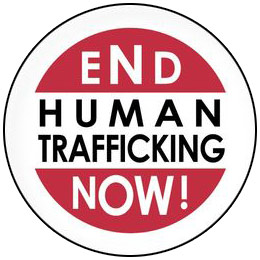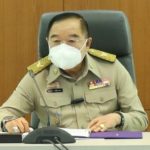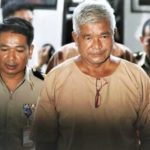
Thailand stepped up its no-holds-barred effort to take down transnational human trafficking syndicates last week, issuing arrest warrants for 49 suspects and arresting 15, including local politicians and two police officers, as the investigation into the trafficking of Rohingya through Thailand widened to additional provinces and Prime Minister Prayut Chan-o-cha called for a regional meeting to solve the problem at its source.
In an effort to resolve a regional human trafficking crisis, Prime Minister Prayut Chan-o-cha took an initiative and called for a three-way meeting with neighbors Malaysia and Myanmar. "I have ordered the Ministry of Foreign Affairs to liaise with Malaysia and Myanmar to hold a meeting to resolve this," Prime Minister Prayut told reporters. "We think this meeting can be held by the end of this month."
Most of those being trafficked through Thailand come from either Myanmar or Bangladesh and are hoping to reach Malaysia. Many, but not all, are from the Rohingya Muslim ethnic minority, which the United Nations has called one of the world’s most persecuted people. The trafficking syndicates are transnational, but involve locals from each country.
The discovery two weeks ago of two virtual prison camps where trafficking victims were held for ransom and at least 30 died has provided the government and law enforcement with the leads and leverage they need to gather evidence and corner the traffickers, including those who are politicians, bureaucrats and police.
The camps were close to the border with Malaysia in Songkhla province, but the investigation has now expanded to other provinces, including the coastal provinces of Ranong and Satun, where ships carrying the victims docked.
Cracking the case involved a joint effort between law enforcement and nongovernmental organizations, in particular Freeland, a civil society group that works against human and wildlife trafficking.
Through telephone forensics provided by Freeland, Thai police were able to learn that the traffickers were sending a ship once a month to Sittwe province in Myanmar, where traffickers would lure 300 to 400 people to pay for passage and board with promises of jobs in Malaysia.
The traffickers “were detected and caught through unprecedented cooperation among police and NGOs. New details on the widening case demonstrate the need for a strong regional cross border trafficking enforcement network involving both governments and NGOs,’’ Freeland director Steven Galster said.
“While a lot has been said about Thailand’s performance battling human trafficking, this case demonstrates their capacity to take on transnational syndicates. We should all applaud Thailand for discovering and stopping this horror and encourage them to do more of the same,’’ Galster said, adding that bank transactions show the trafficking syndicate is a multi-million dollar operation.
For more information and updates about Thailand's policies and actions against trafficking in persons and related issues, visit www.thaianti-humantraffickingaction.org




